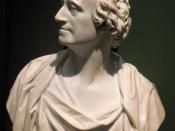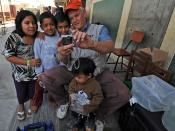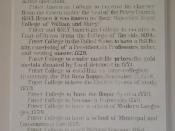Even the dogs may eat of the crumbs that fall from the rich man's table; and in these days, when the rich in knowledge eat such specialised food at such separate tables, only the dogs have a chance of a balanced diet.( n1)The Guest Editors of this issue of New Political Economy invite us to 'put the "P" back in to political economy'. This exhortation poses two immediate questions. Who took it out? And, indeed, what is political economy? For economists, some would argue, it has been missing since the development of the marginalist revolution after 1870 when political economy became a theory of choice under constraint in which 'economics is a way of acting and politics is a place to act'.( n2) Once the bifurcation was established, economists and political scientists went their separate merry ways throughout the twentieth century. But, without overestimating the current and still limited interaction between economics and political science,( n3) is a rethink of this intellectual apartheid taking place?Over the last few years scholars of 'mainstream' political science--I cannot resist pointing out--have belatedly begun to recognise what contemporary students of international political economy had taken for granted for three decades: politics and economics are not separable analytical categories.(
n4) And in pockets of the economics mainstream--as opposed to the professionally marginalised fringe of policy economists--'policy' is ceasing to be a dirty word. What has caused the re-evaluation? In a word, 'globalisation'. Monodisciplinary analyses cannot cope with it.
Now, 'globalisation' is a slippery and fast moving concept. It is also a contested concept that cannot be detailed here save to note that we are in the 'third stage' of the debate over the nature and impact of globalisation.( n5) Phase one saw globalisation as pervasive, with the traditional actor in international economic and political orders--the...


